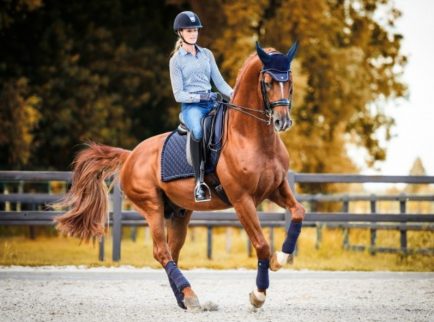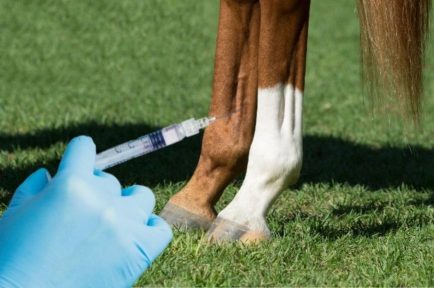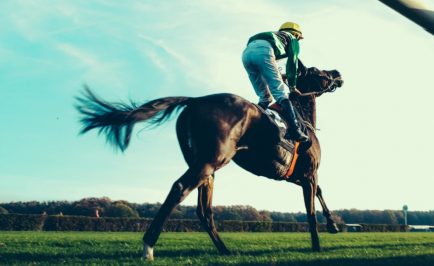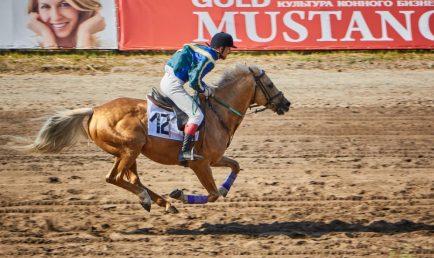With horses, purchasers are primarily concerned with issues of lameness, respiratory health or any conditions or diseases that will render the horse either now or after purchase unfit for riding – or use in whatever way the purchaser has in mind. The purpose of the pre-purchase exam is to obtain as much information as possible about the health of the horse and to detect any physical defects so that the purchaser can make an educated decision on whether or not to purchase the animal.
Given the price of horses, the veterinarian is assuming a huge responsibility when rendering a pre-purchase opinion to a prospective purchaser. If the veterinarian is negligent in the provision of that opinion and the animal proves unsound after purchase, the veterinarian could be found responsible by the Courts for all of the purchaser’s damages, including the sale price of the animal, transportation costs, vet bills, board and other maintenance costs, and even such abstract claims as damages for the pain and suffering of the purchaser and lost opportunity costs. For a pre-purchase examination fee running between $200 to $2000, a vet assumes a significant risk.
Standard of Care
There is limited case law on the general standard of care imposed on veterinarians. The authority in Wheeler v. Muri adopted a physician’s standard of care for medical malpractice cases in relation to veterinarians. The standard of care was that of a reasonable degree of learning and skill ordinarily possessed by practitioners in similar communities in similar cases.
The authority in Hihn v. Schaeffer held that a vet is not a guarantor of results, but must provide services in a reasonably efficient manner. The Court in Brettell v. Main West Animal Hospital Ltd. accepted testimony from a veterinary surgeon and professor of veterinary medicine at Guelph Veterinary College that a veterinary surgeon is not expected to be an expert in every instance.
It is not enough to conclude that a veterinarian has followed the usual practice in any particular area; the duty is fulfilled only if the veterinarian acts in accordance with a practice rightly accepted as proper by a body of skilled and experienced veterinarian practitioners. The next step is then to consider whether the veterinarian conducted the adequate tests sufficiently.
As a rule of thumb, a veterinarian’s standard of care for a pre-purchase exam is to perform the exam with reasonable care and skill, the reasonableness of which will be determined by, if you like, ‘industry standards’ – the usual degree of care and skill exercised by veterinarians in like cases in like communities.
It should also be noted that the Veterinarians Act, R.S.O. 1990, c.V.3, section 5.5 mandates that the professional, fiduciary and ethical obligations of a member to a person on whose behalf the member is practising veterinary medicine are not diminished by the fact that the member is practising veterinary medicine through a professional corporation; and apply equally to the corporation and to its directors, officers, shareholders, agents, and employees.
Legal Tips
As a lawyer, I cannot comment on the scope of a pre-purchase exam or the tests considered suitable or adequate. No doubt these will vary considerably depending on the type of animal and the purpose of purchase. While the following is not an exhaustive list of what you should consider in respect of a pre-purchase exam, it may nonetheless serve as a guide:
Always ask for a written report of the pre-purchase findings from the veterinarian prior to the purchase of the horse.
From a business perspective, this shows that the veterinarian is serious about his job. From a legal perspective, it protects you from any uncertainty in the event that the horse is unsound. With no written report, it will be more difficult to prove the facts in Court.
Avoid conflicts of interest. It is best to avoid using a veterinarian who works for the vendor. You may think that it is preferable to use someone who has prior knowledge of the horse, but there are potential conflicts of interest. For example, the veterinarian may be torn between disclosing knowledge of a past injury or disease and the obligations of confidentiality to the previous owner of the horse. In the case of Southwhite Stables Inc. v. Ingram Veterinary Services Ltd., the veterinarian who carried out the pre-purchase exam had treated the horse three years previously for an eye injury on behalf of the vendor. The veterinarian took special care, but did not carry out any additional tests, nor did he inform the purchaser of the past injury. A year after the purchase, the horse went blind in one eye from cataracts. The veterinarian was not found to be negligent, as he had followed the standard accepted practice for veterinarians. However, if the purchaser had used an independent veterinarian, questions may have been raised regarding past injuries and more thorough tests may have been carried out which may have revealed the disease.
Make it clear to the veterinarian for what purpose you are buying the horse and make sure that this purpose is incorporated in the report.
This is important for two reasons. Courts have indicated that a proper pre-purchase opinion takes into account the purpose intended by the buyer. Further, the purpose of purchase may dictate the types of tests used on pre-purchase and the degree of exploration required. For example, the purchase of a competitive show horse may require the addition of ultrasounds and x-rays to the usual physical examination of the horse performed by the veterinarian. The purchase of a broodmare requires other questions or tests, such as reproductive history, palpation and ultrasound.
Ask the veterinarian if there are any less-standard tests available as part of the pre-purchase exam, in addition to the tests usually performed or recommended. In so doing, you have the choice of a more detailed examination. This may cost more, but money spent at this part of the process may save money in the long run.
Due to the fact that certain animal injuries or illnesses can come on suddenly and without notice, the ideal time for vetting should be as soon before closing as possible. Be aware of the time implications in vetting an animal too far in advance of closing the sale. Remember that the examination is only a snapshot of the condition of the horse at the time it is done.
If there is anything that the veterinarian says that you do not understand, or there is any point which you think needs further investigation, do not be afraid to ask.
The purchase of a horse will always carry some risk, but with some consideration and the assistance of a knowledgeable professional, you can make the process as painless as possible. Remember, extra money spent at the outset may be worth every cent.
Original article: Pre-Purchase Exam: Everything You Need To Know About Buying a Horse (horsesport.com)
Royal Equestrian – Riding Apparel, Horse Fashion, Horse Tack (royalequestriancollection.com) – check our website to purchase and enjoy our products for your horses and you.



























